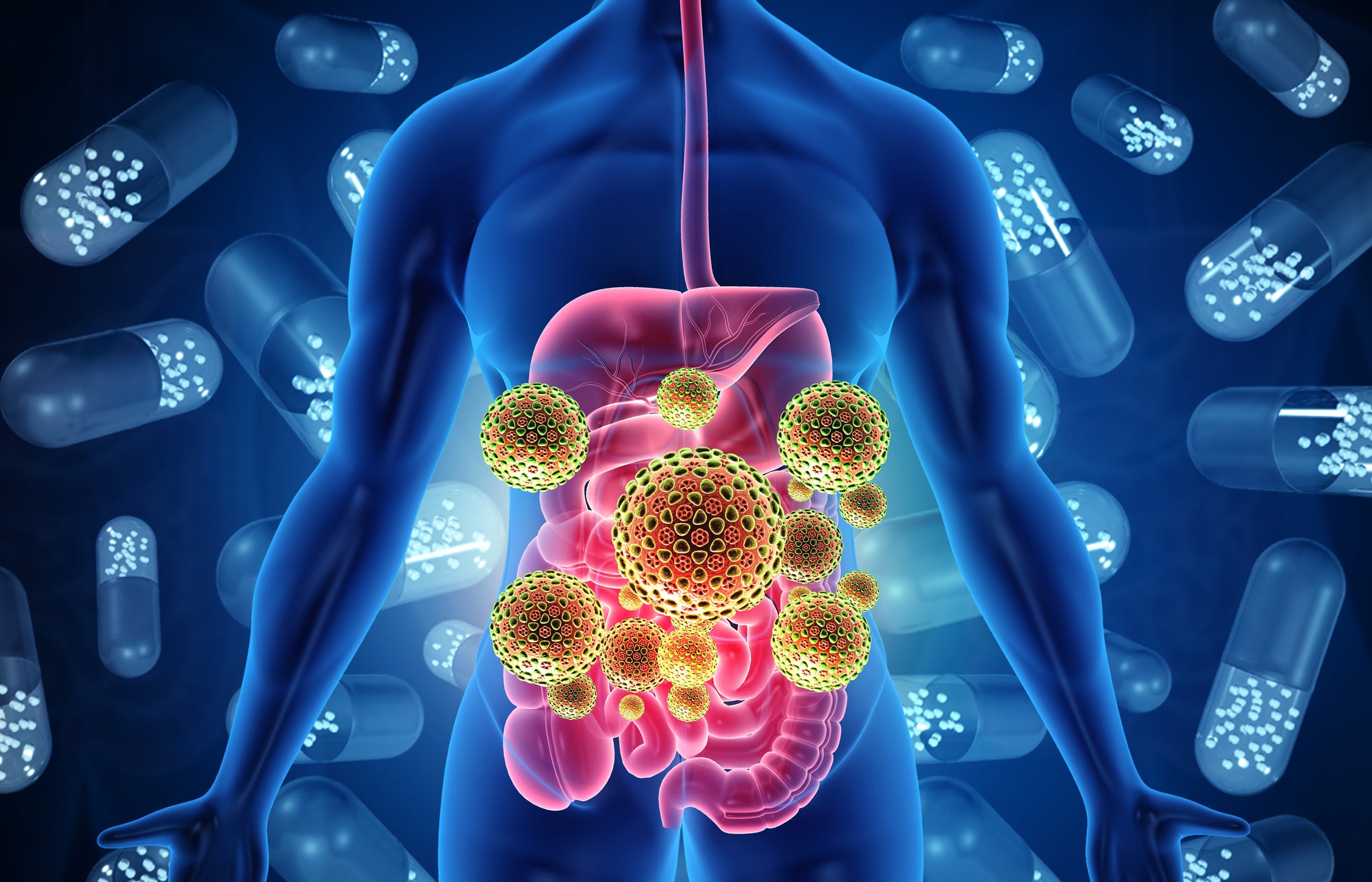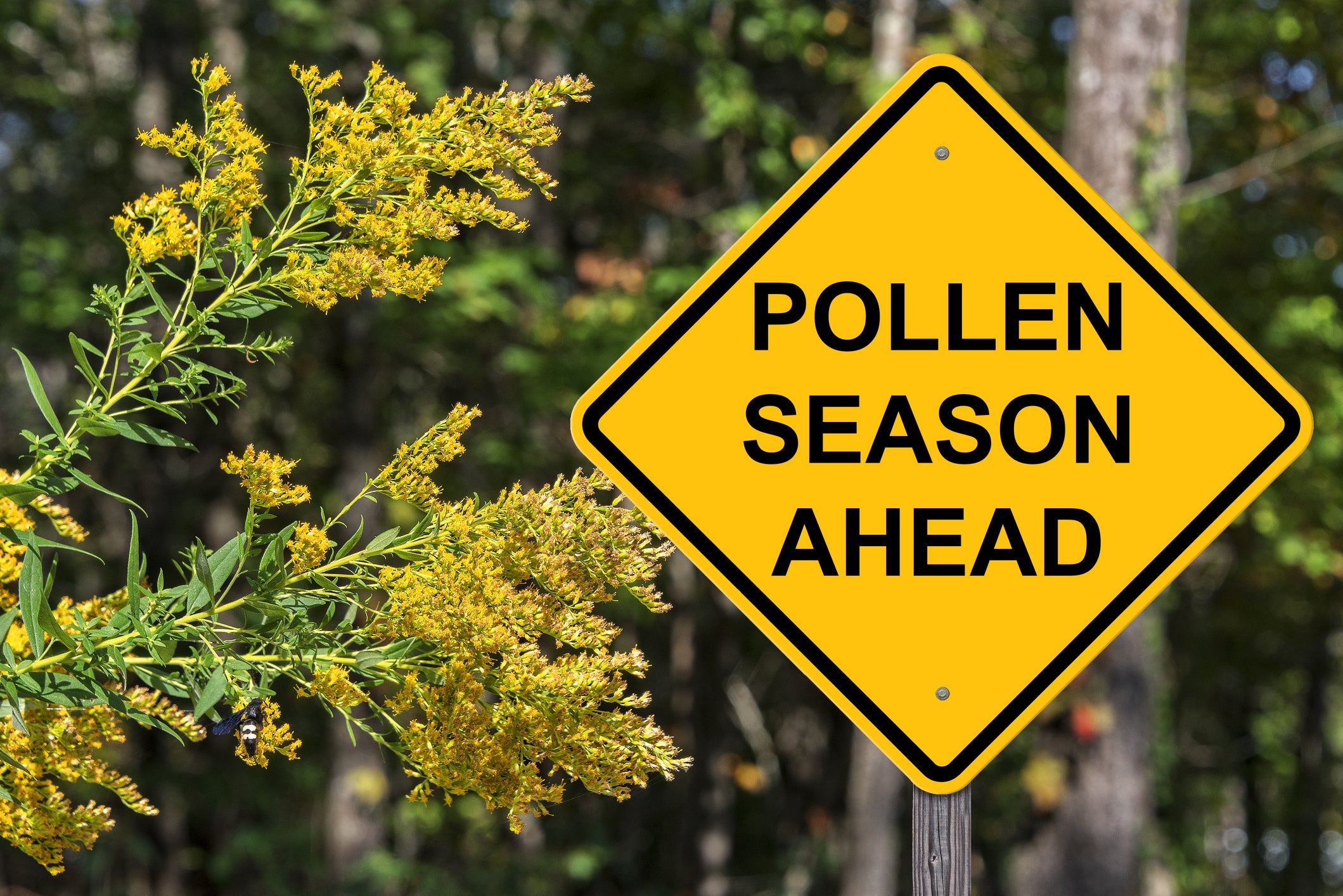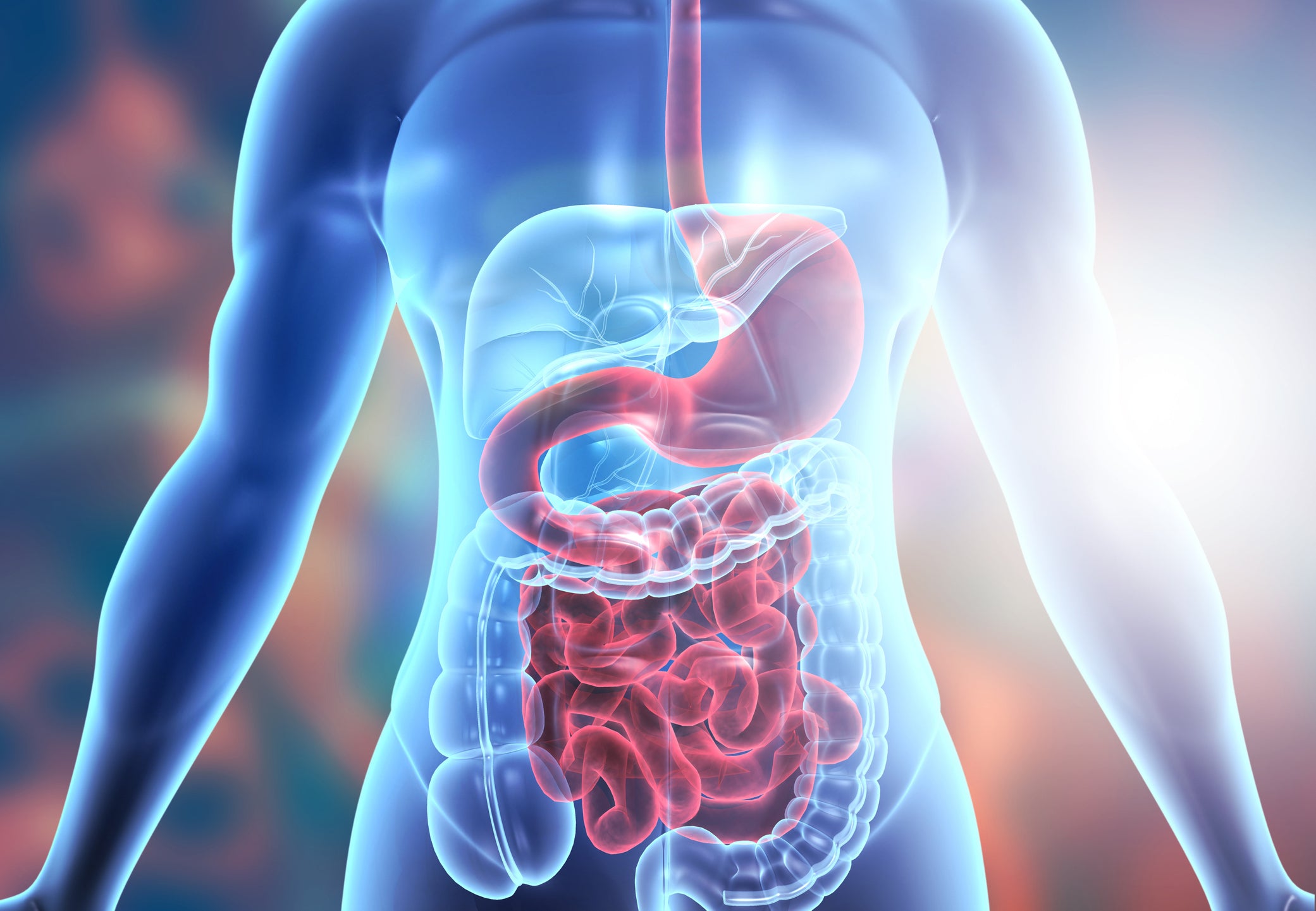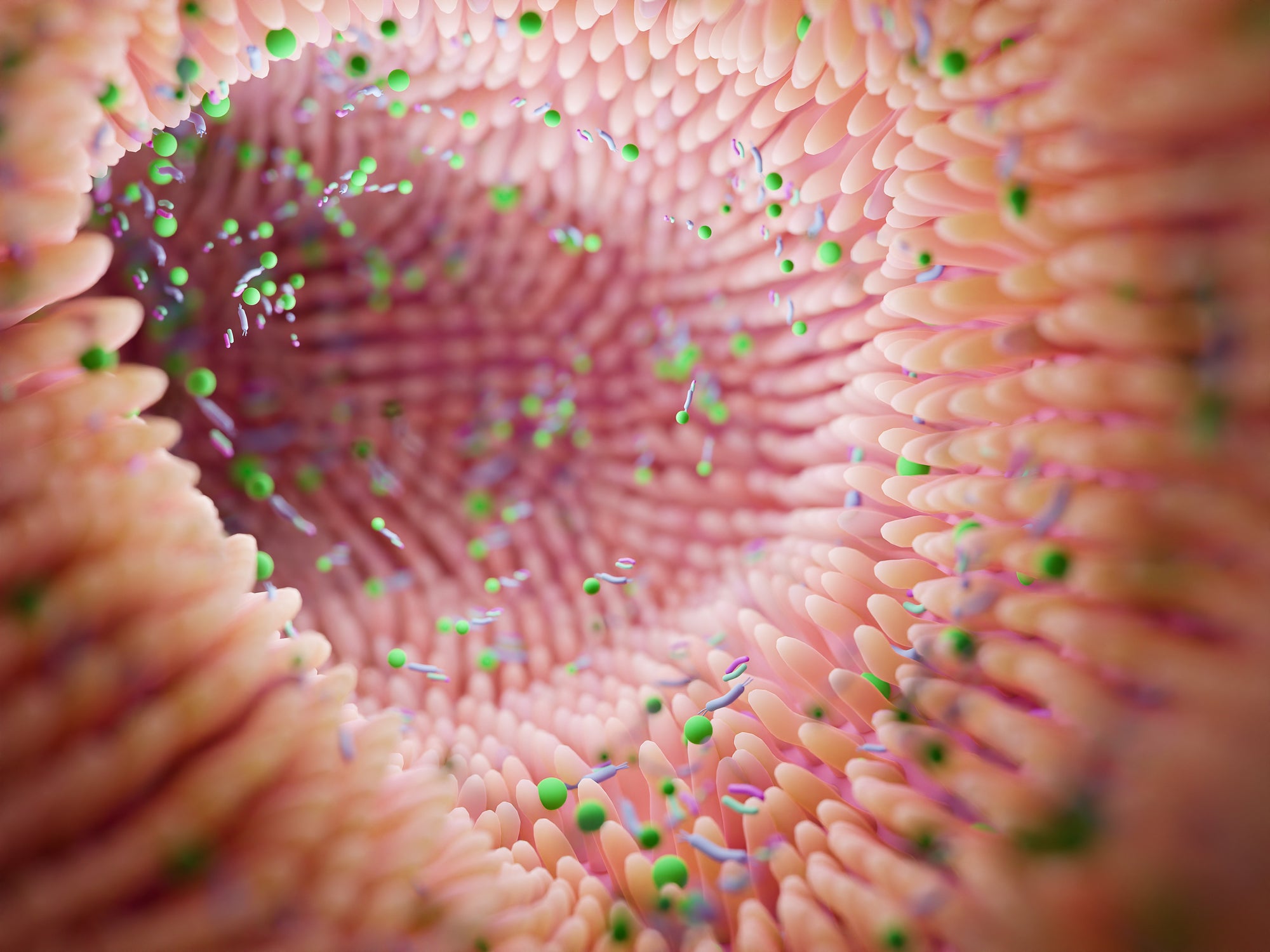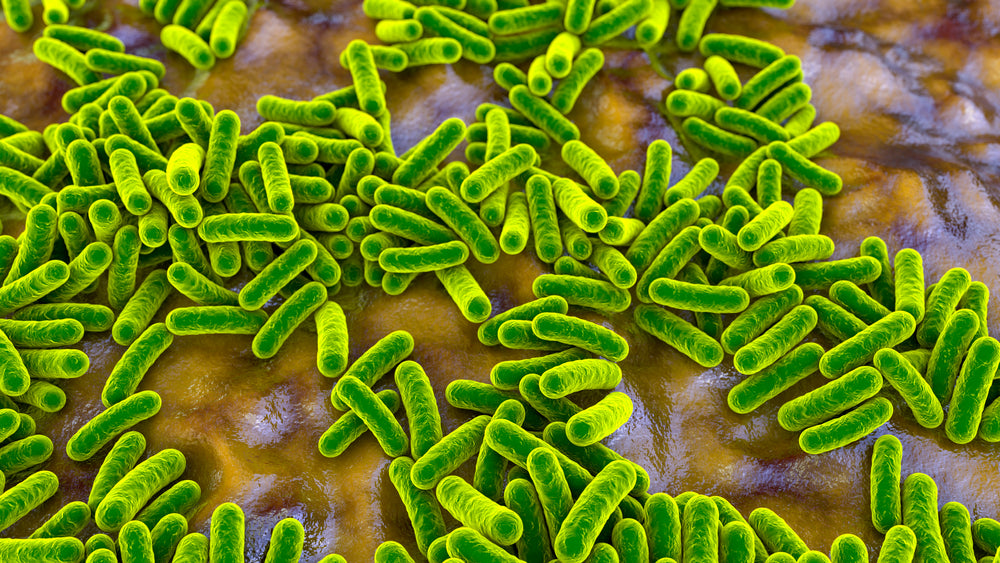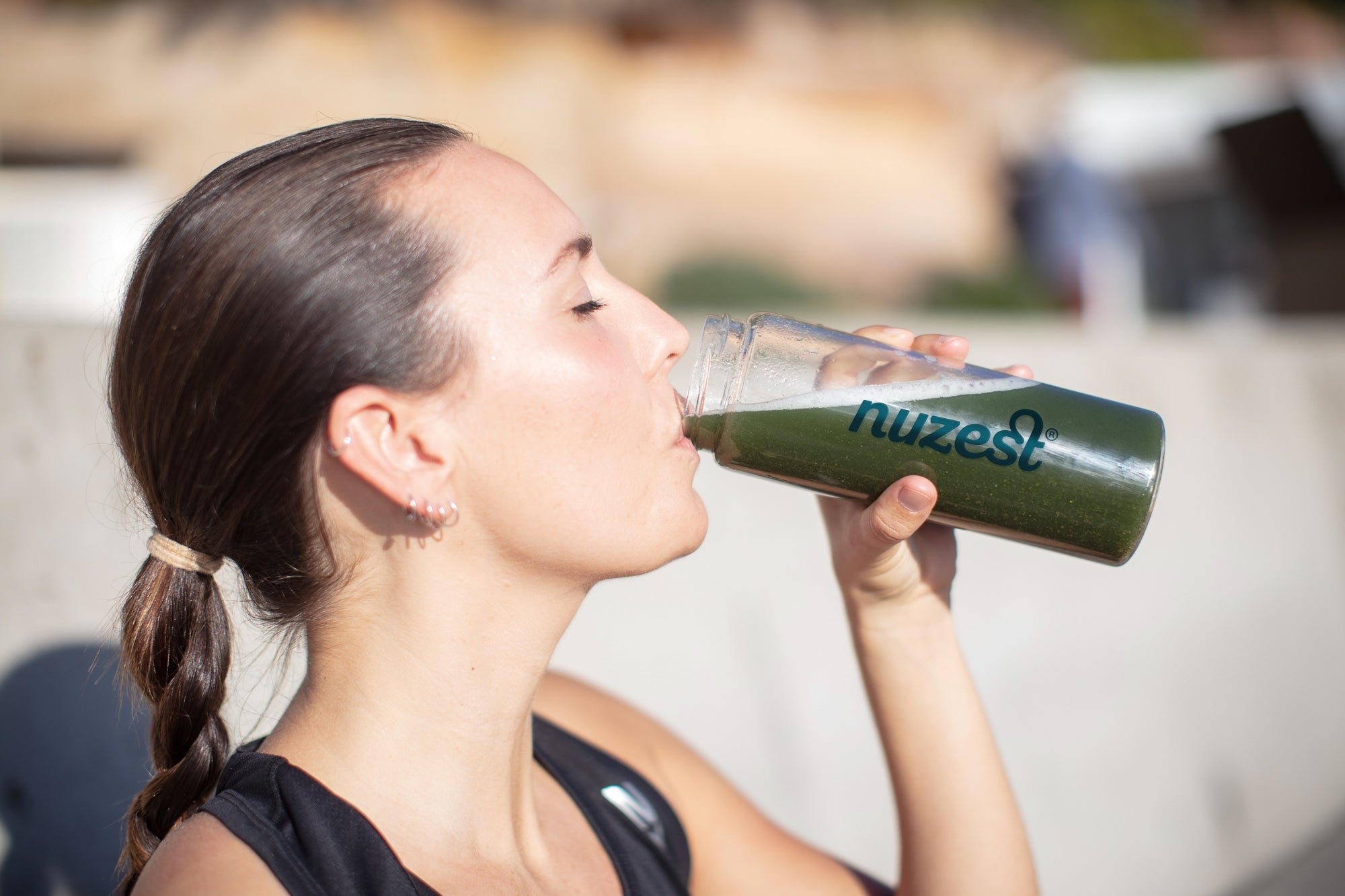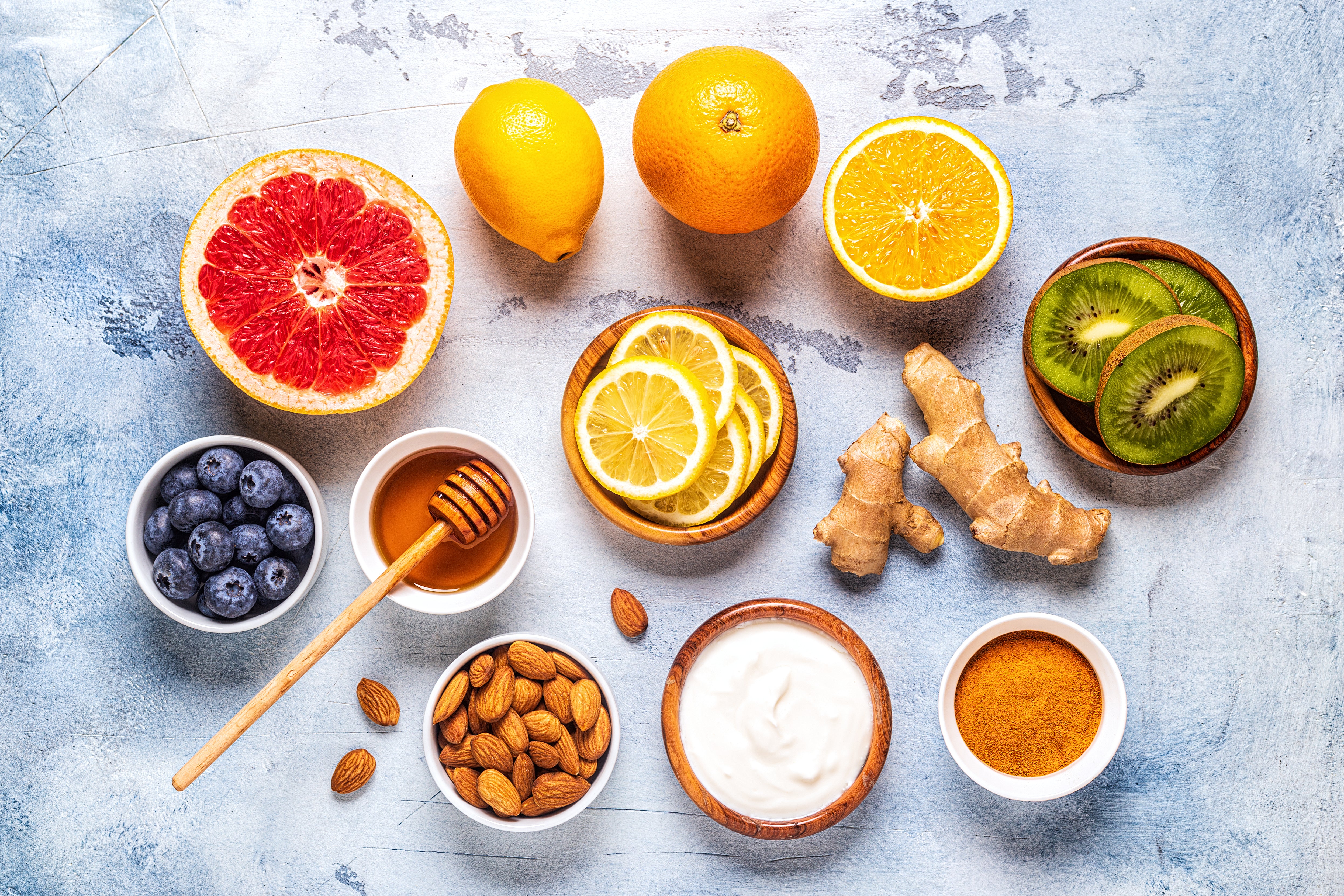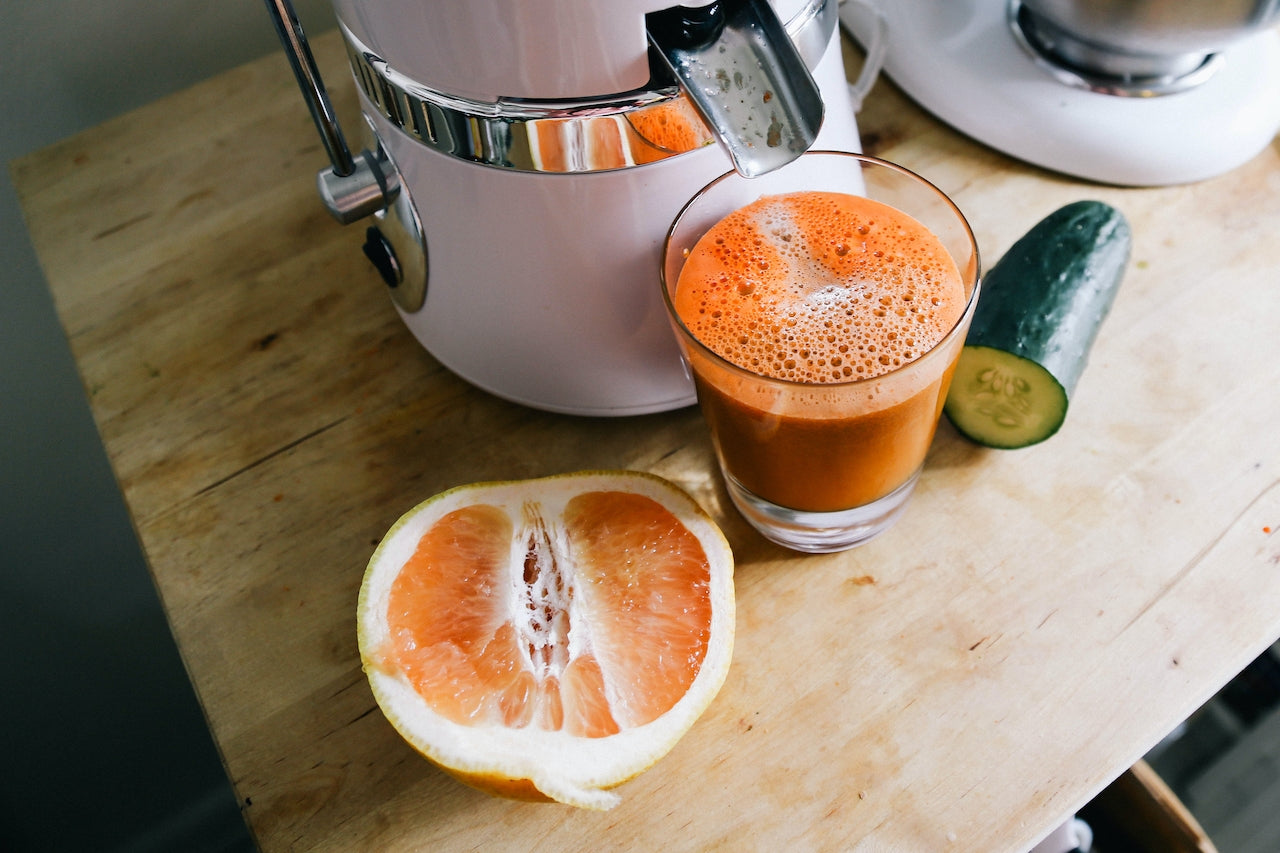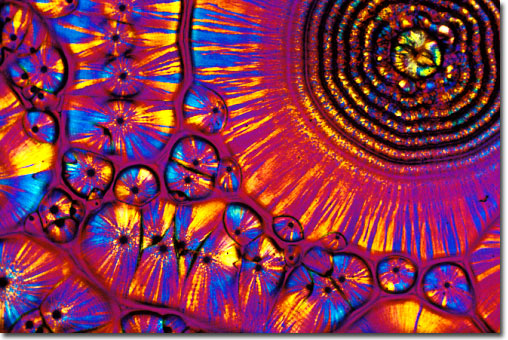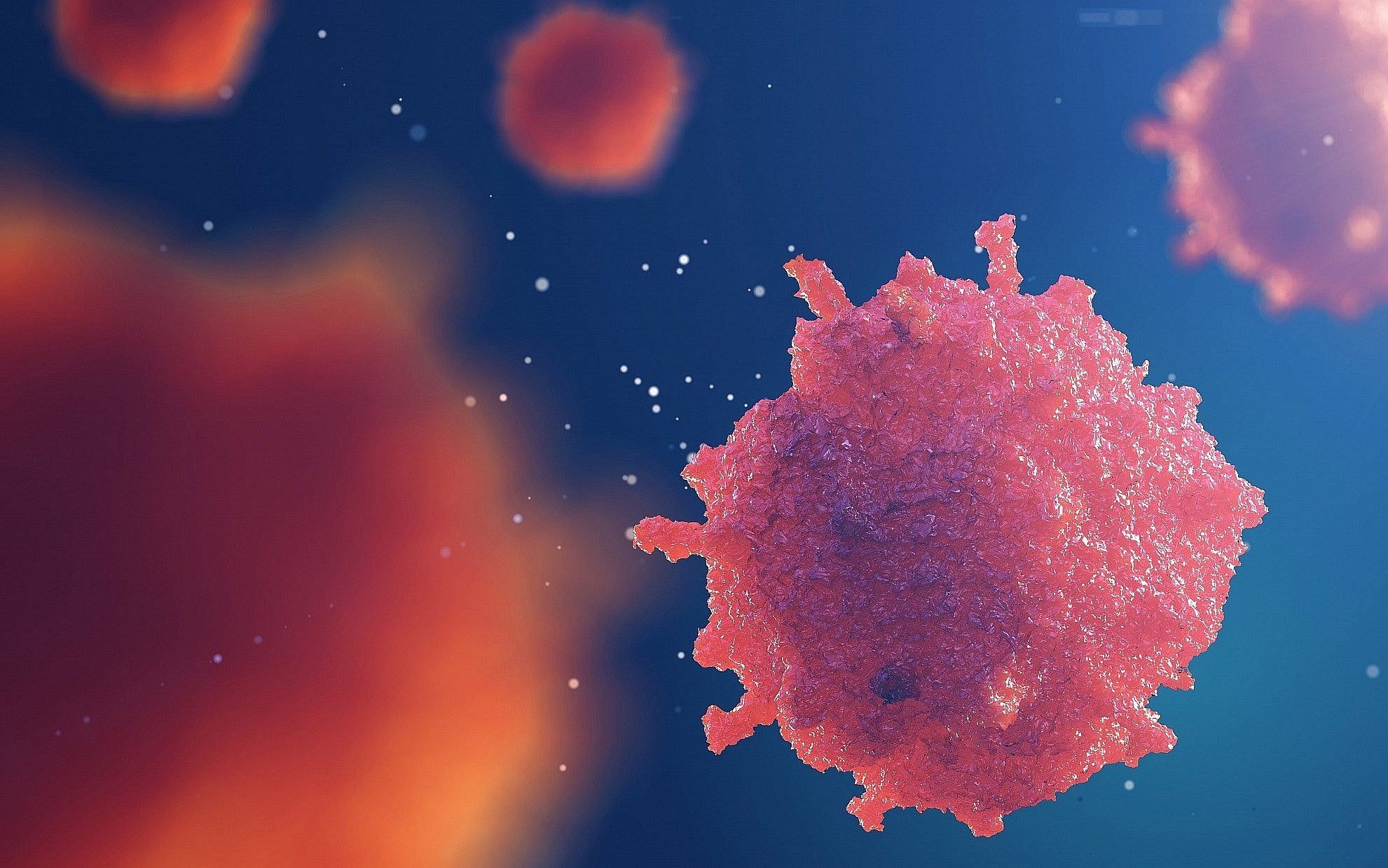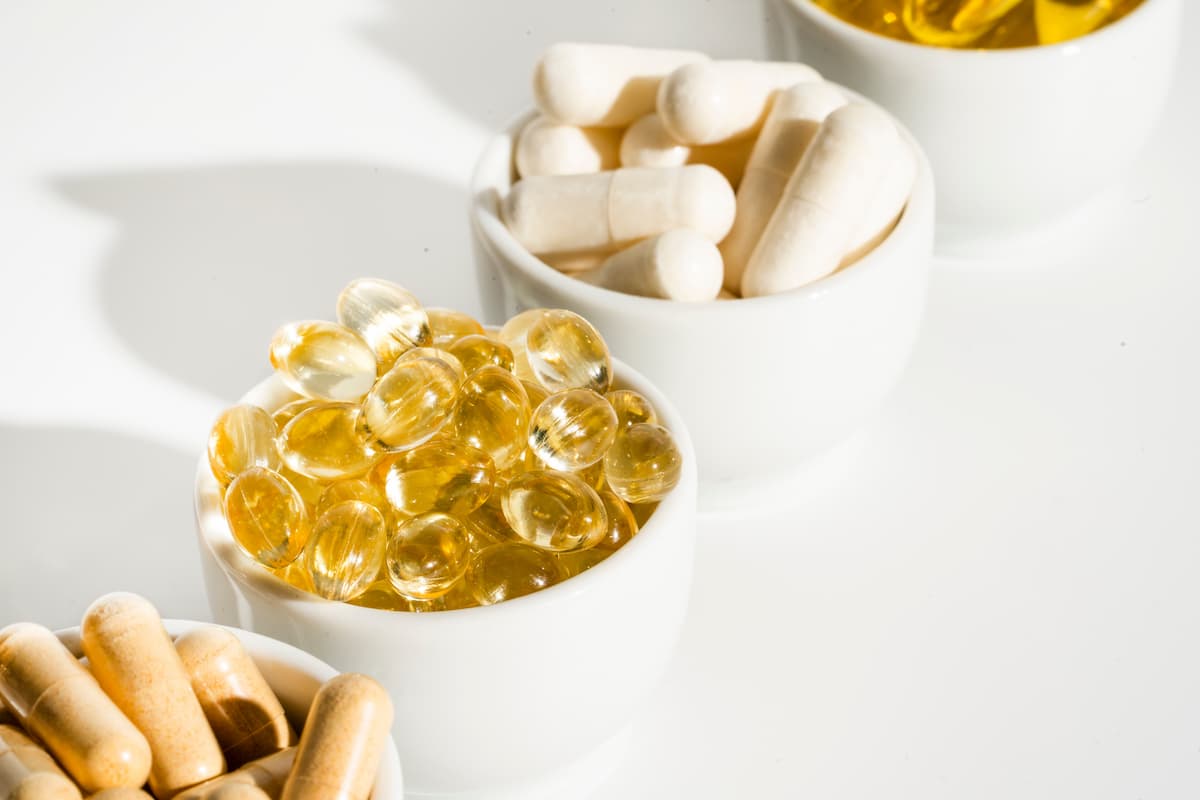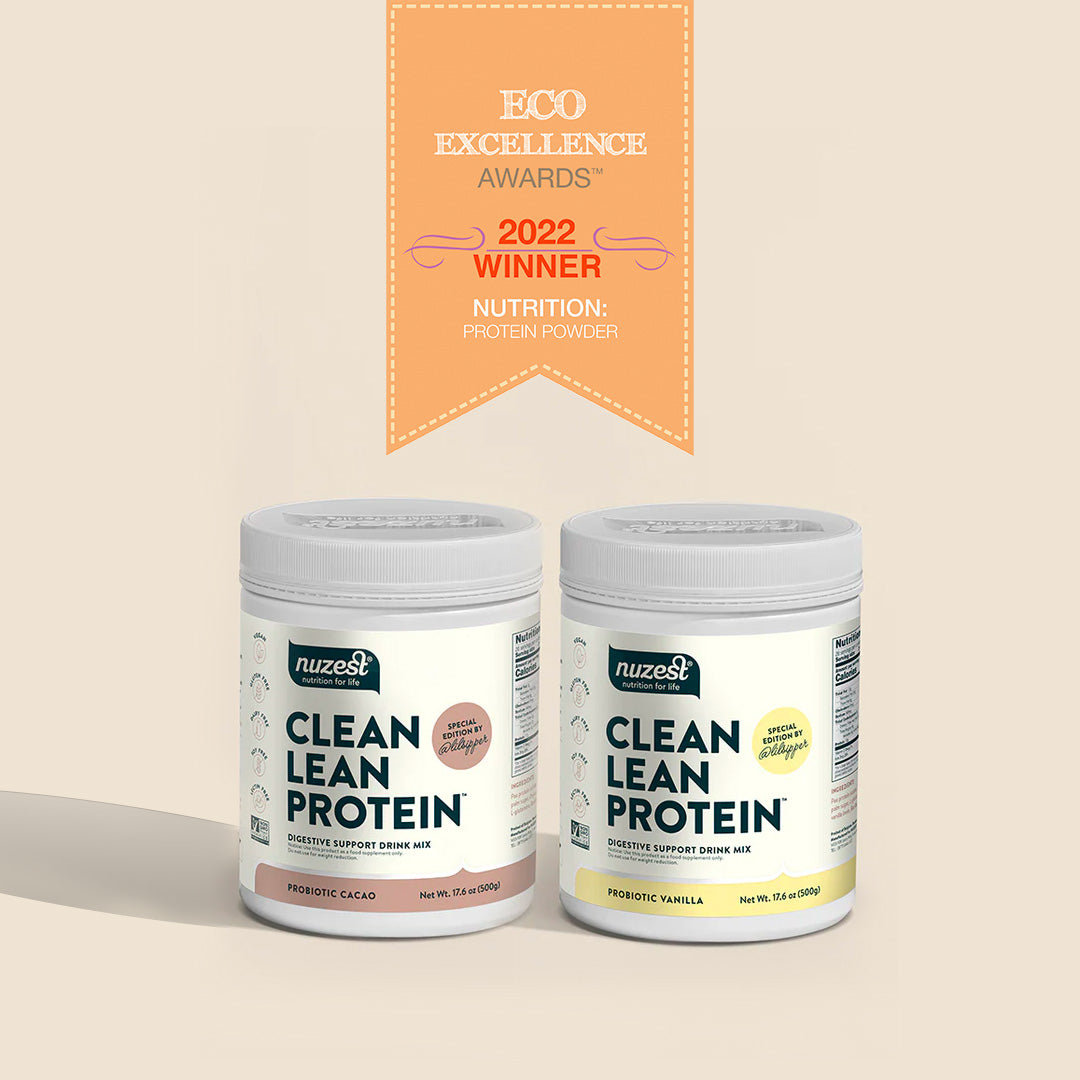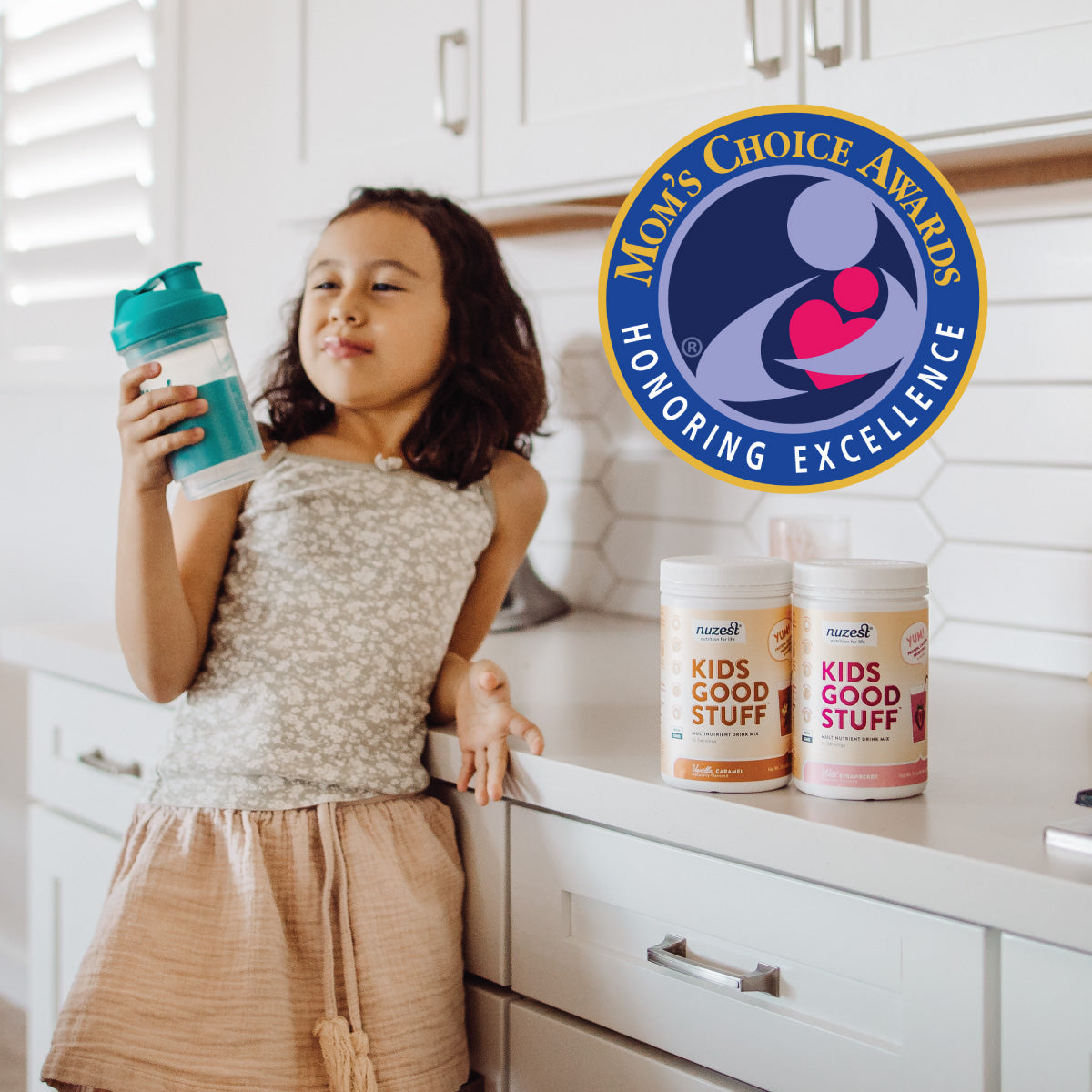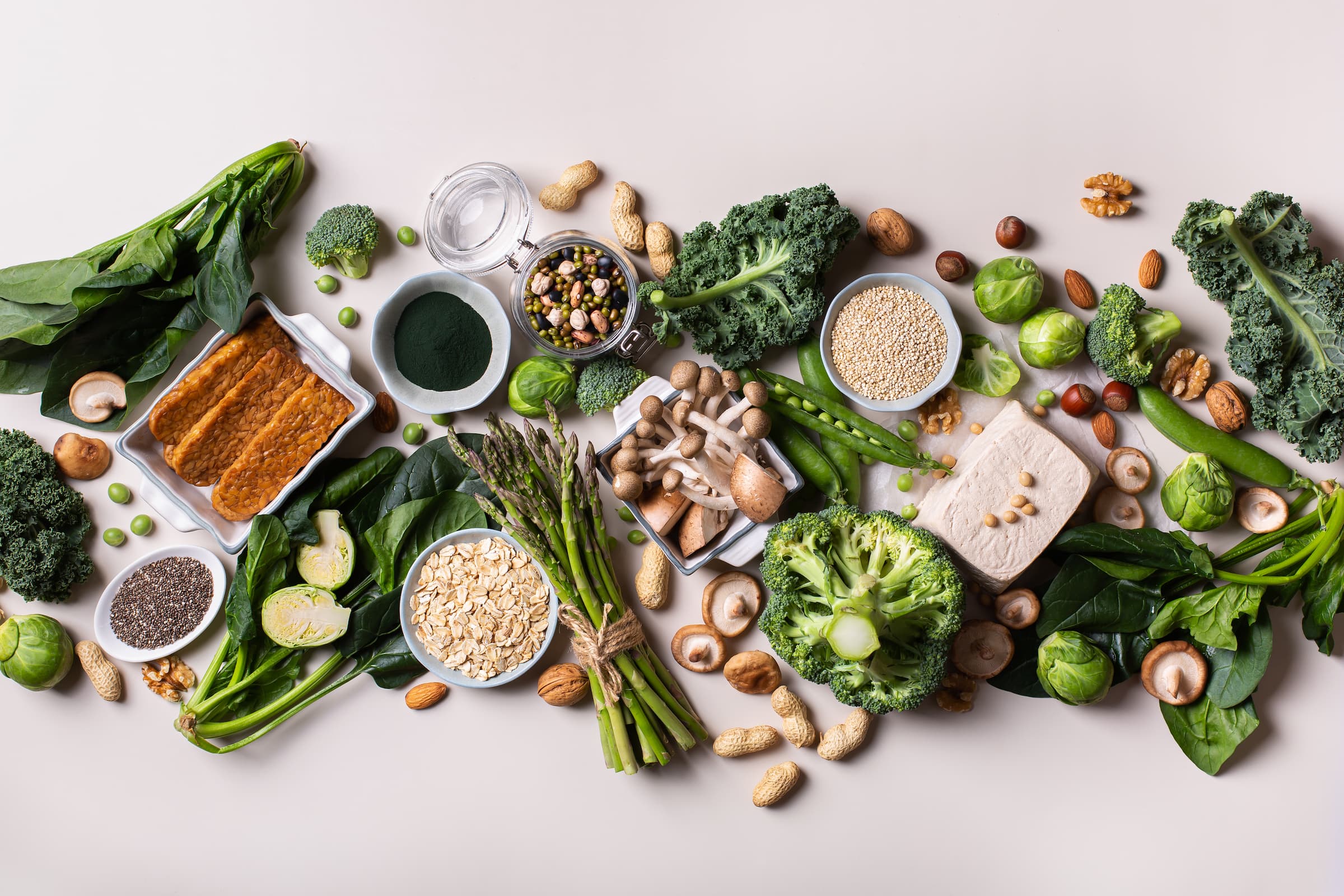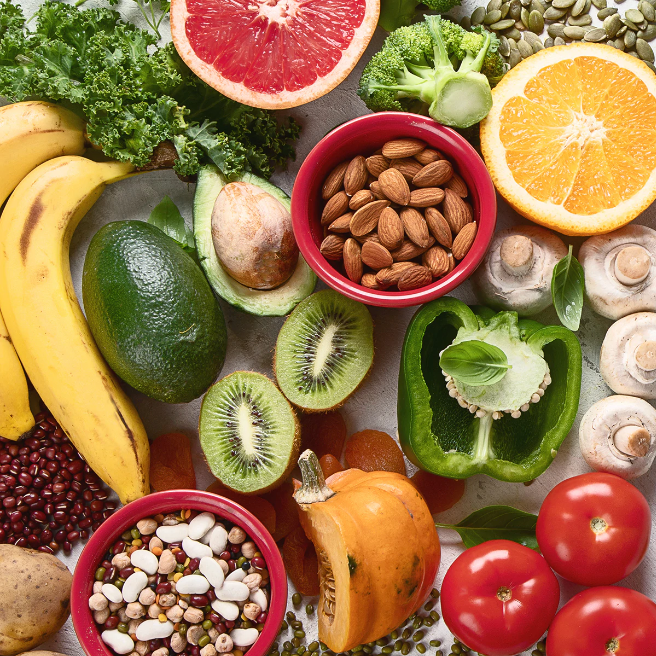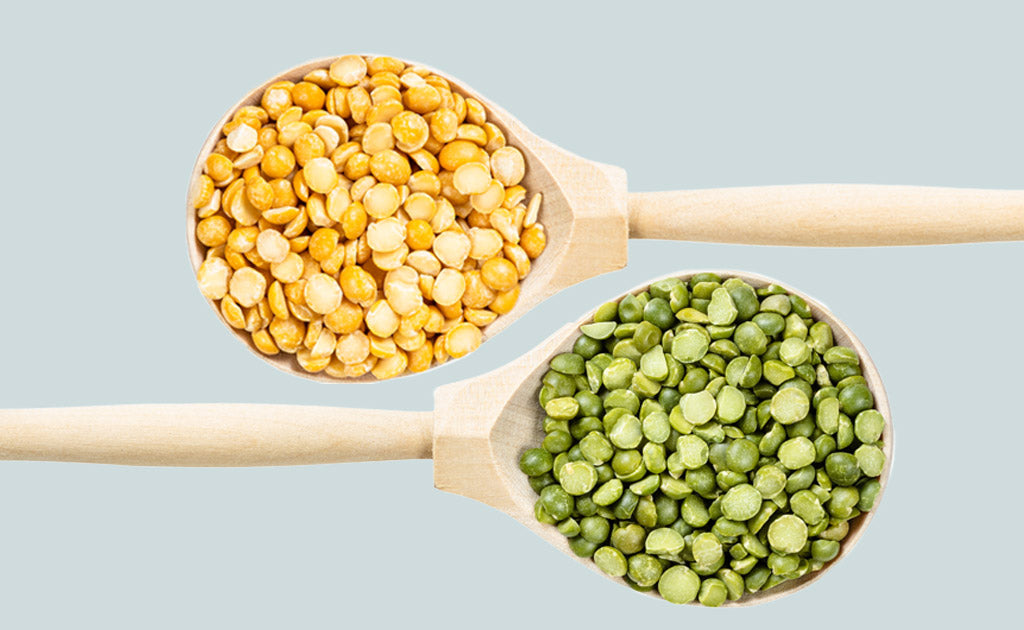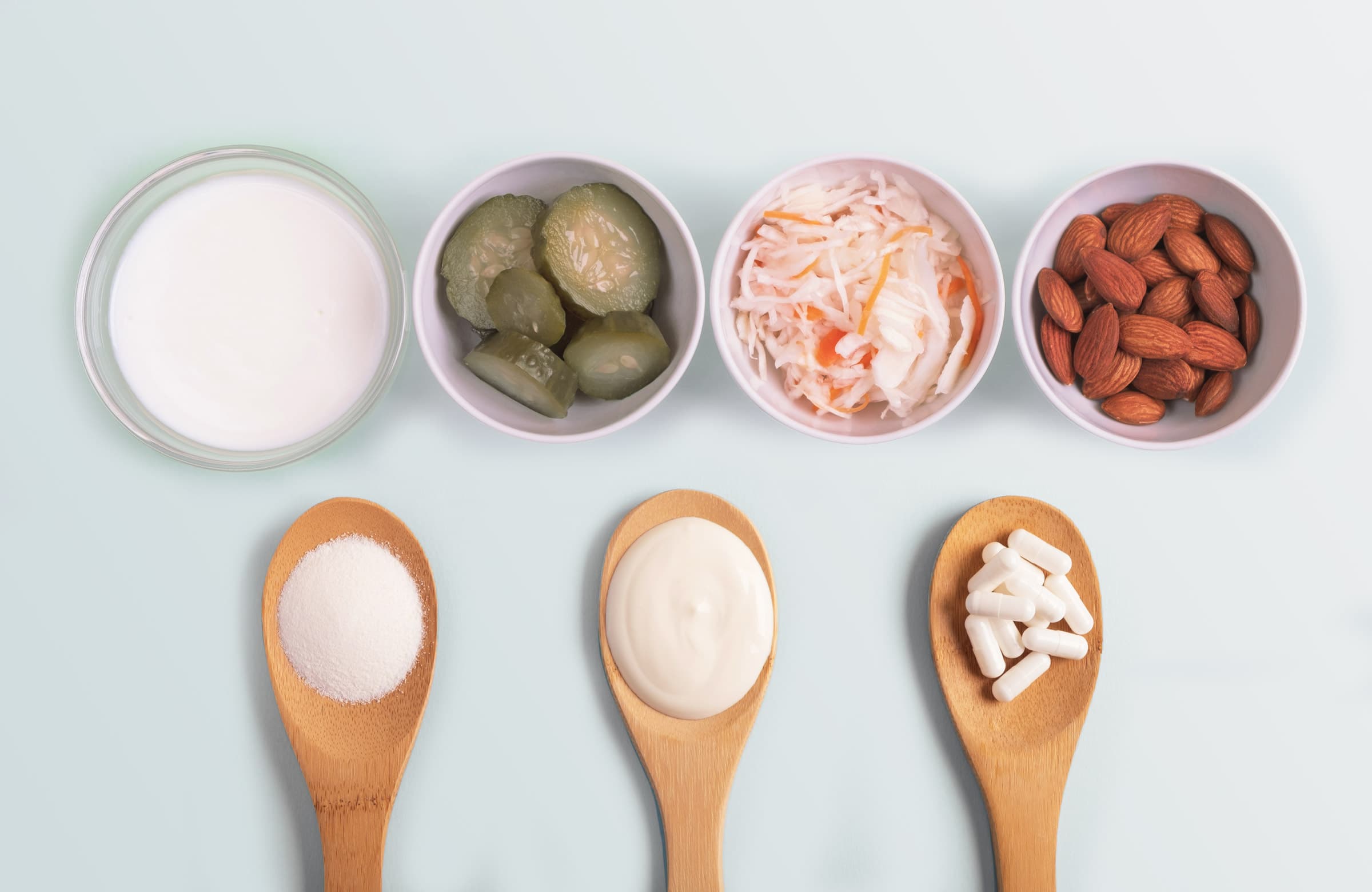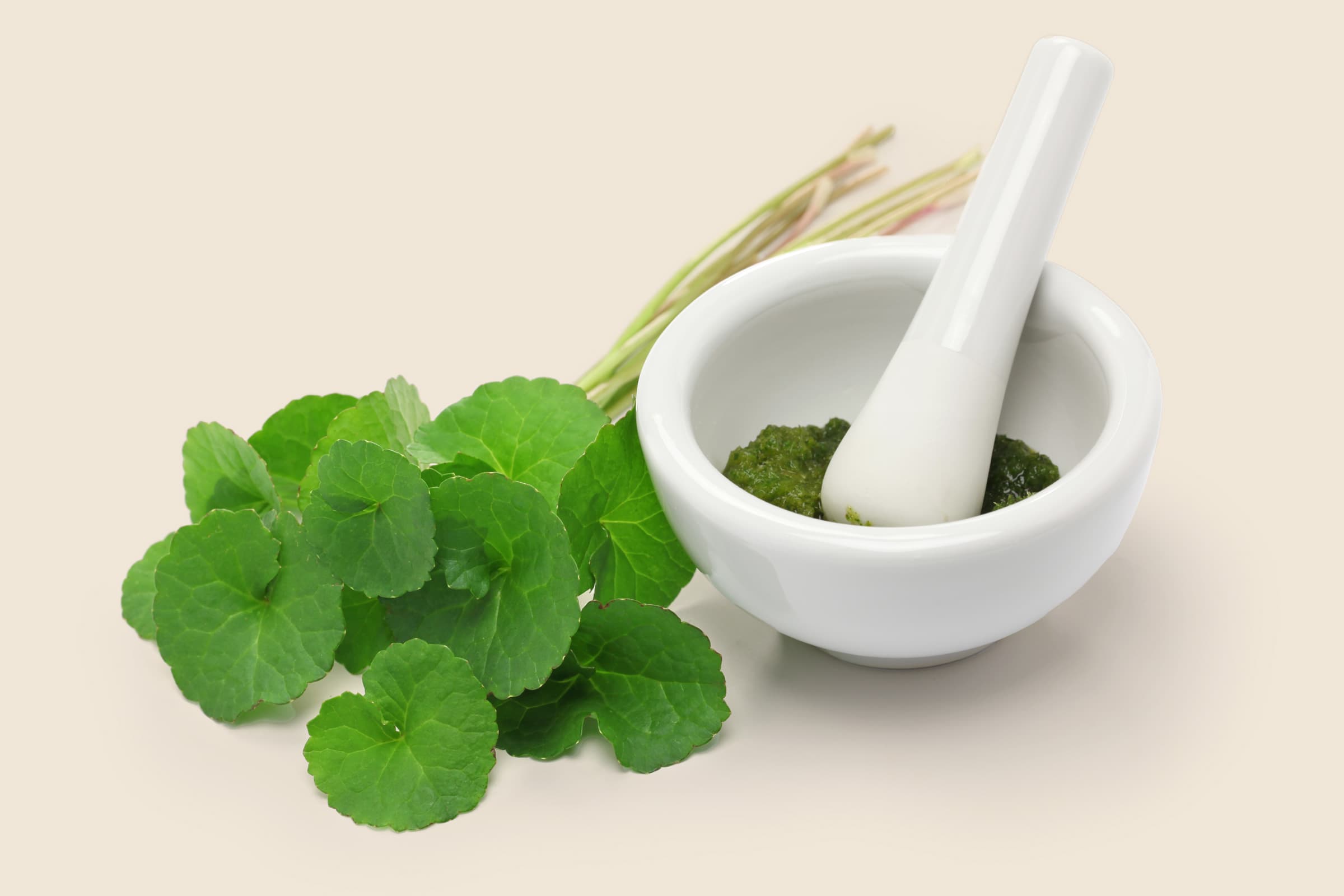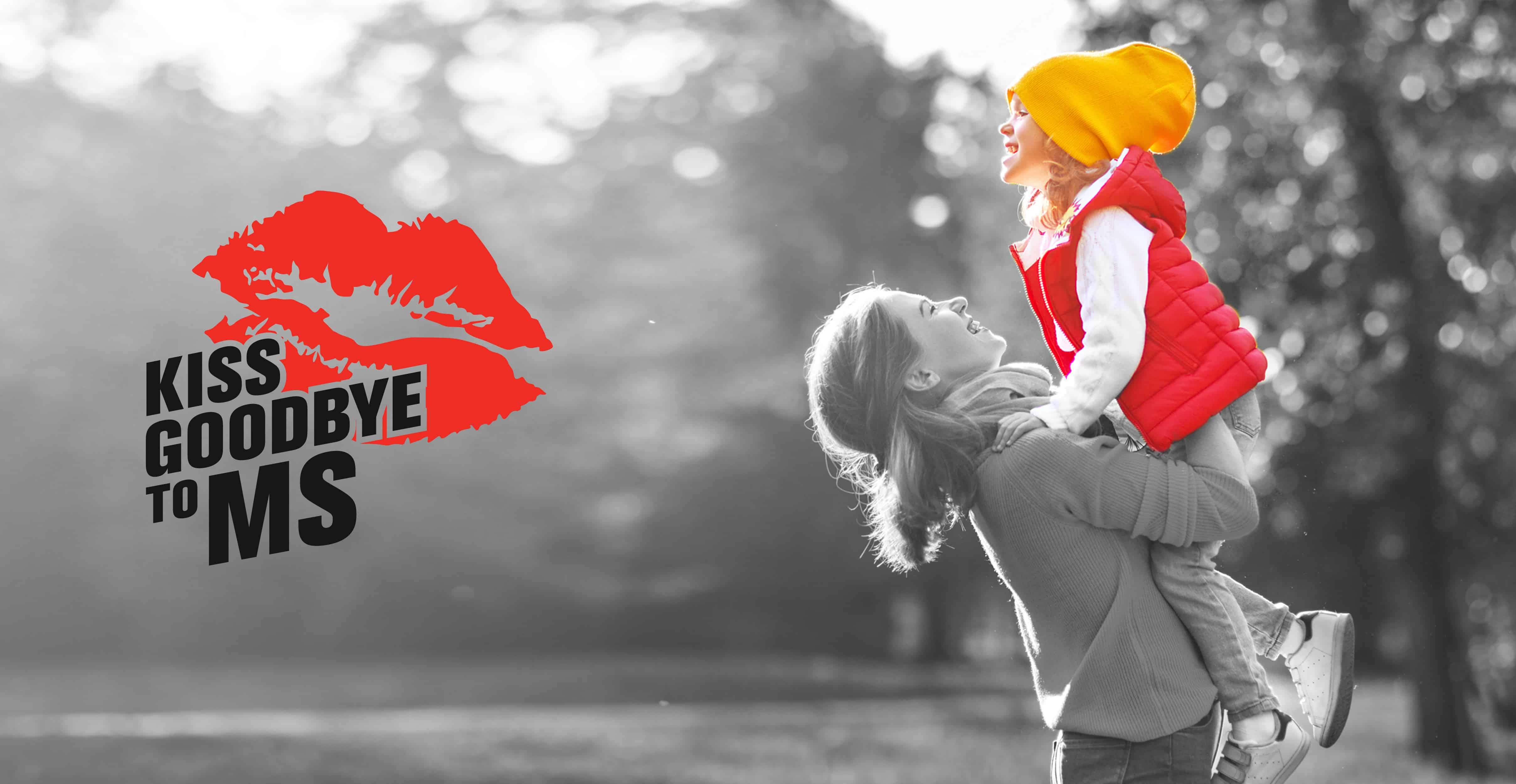By Molly Pelletier, Gut Health Nutritionist, MS Dietetics Candidate
Currently in the United States, 60-70 million people are impacted by digestive issues.1 In addition to stress management and adequate sleep, nutrition plays a major role in the prevention, treatment, and management of digestive issues. Because digestive dysfunction impacts nutritional status and malnutrition further impairs digestion, proper dietary measures must be addressed in order to restore digestive health.
Read below to learn about the 8 major digestive issues, their impact on gut health, as well as how nutrition can support.
Table of Contents
- Gastroesophageal reflux disease (GERD)
- Gallstones
- Constipation
- Crohn’s Disease
- Ulcerative Colitis
- Irritable Bowel Syndrome
- Diverticulitis
- Protein and Digestive Issues
Gastroesophageal reflux disease (GERD)
GERD, or Gastroesophageal reflux disease, is very common with around 20% of the US population experiencing symptoms weekly.1 Common GERD symptoms include heartburn, sore throat, nausea, belching, and sometimes abdominal pain. A common misconception of GERD is that its ideology is overproduced stomach acid. However, GERD can also occur due to decreased stomach acid that leads to a decreased ability to digest food. This indigestion can force stomach acid towards the lower esophageal sphincter, causing heartburn and other GERD symptoms.2
The management of GERD depends on many factors. Oftentimes, medications like Proton Pump Inhibitors are prescribed to manage excess stomach acid. However lifestyle and nutrition interventions can provide clinically significant relief and lasting symptom management. Limiting spicy foods, fried foods, alcohol, chocolate, and acidic foods may help to decrease GERD symptoms. Eating smaller, more frequent meals and avoiding a supine position 2-3 hours after eating can also provide significant improvement.3 Looking for what to eat to support your gut? Check out this helpful guide.
Managing stress is also key in managing GERD symptoms, since GERD symptoms can increase with psychosocial stress.4 Since many protein foods are also high in fat, opting for lean protein sources, such as tofu, lentils, and pea protein powders like Clean Lean Protein by Nuzest, are great protein options for people with GERD. Opting for high protein foods is essential for GERD management for when meals are smaller, they must be nutrient dense in order to meet daily nutrition requirements.5
Gallstones
Cholelithiasis, or gallstones, is a common condition in which hard stones composed of cholesterol or bile pigments form in the gallbladder. Although gallstones are normally asymptomatic, they can cause systemic infections and inflammation if left untreated. Gallstones are strongly correlated with a high fat, high fructose, and low-fiber diet. Those with diets high in plant-based proteins and plant fibers have a much lower risk for gallstones. After gallstones have been medically treated, it is advised to follow a diet high in plant-based foods, vegetable proteins, olive oil, vitamin C-rich fruits, and fatty fish in order to decrease future risk.6 Plant-based protein sources such as beans, legumes, tofu, and pea-based protein powders are great choices to contribute to your daily protein intake.
Constipation
The prevalence of constipation is high with roughly 20% of the American population experiencing symptoms.7 However, prevalence of constipation is difficult to quantify because many individuals are not aware they are constipated. Even if you produce a bowel movement everyday; if they are hard, difficult to pass, or incomplete, you may be constipated. Other constipation symptoms include passing fewer than 3 stools per week, abdominal cramping, and nausea.8
Constipation is not only uncomfortable, but it can impact your gut health, hormones, and nutritional status. If proper evacuation is not achieved, waste and hormones build up in the body causing symptoms. A loss of appetite can also be a result of constipation, which further impacts nutritional status. Adequate fiber, ample hydration, and daily exercise are 3 essential tools to prevent and manage constipation.8 Fiber from sources like fruits, veggies, oats, and seeds like chia or flax can help you increase fiber in your diet. Adding a protein smoothie smoothie with fruits, veggies, plant-based milk and Clean Lean Protein or Digestive Support Protein can be a great way to increase fiber, protein, and fluid consumption.
Crohn’s Disease
Crohn’s Disease is an inflammatory bowel disease characterized by patches of inflammation throughout the digestive tract leading to diarrhea, pain, fatigue, bloody stools, and weight loss.9 Like many inflammatory digestive disorders, malnutrition due to malabsorption is a serious consequence. Additionally, iron deficiency resulting from blood loss can contribute to malnutrition. Clean Lean Protein contains 20% of daily iron recommendations, making it a great choice for those suffering from GI-related blood loss. Consuming nutrient dense, high protein foods is essential in order to prevent malnutrition and support gut health in individuals suffering from Crohn’s Disease.
Ulcerative Colitis
Ulcerative colitis, or UC, is another inflammatory bowel condition. However, UC differs from Crohn’s disease because the inflammation is isolated in the colon, whereas in Crohn’s disease the inflammation can occur anywhere in the GI tract. Individuals with UC may experience flares where their symptoms become more severe. During this time, they may have to avoid high fiber and high fat foods.10 However, medical nutrition therapy for any Inflammatory Bowel condition is extremely personalized and must be addressed with a Gastroenterologist and Registered Dietitian. Eliminating food triggers can be helpful in preventing symptoms, however unnecessary elimination can further promote malnutrition and therefore triggers should be identified by a medical professional.11
In general, ensuring individuals with UC receive adequate nutrition and protein during flare ups is of the utmost importance. A high calorie and protein-rich diet is ideal for patients suffering from UC-related malabsorption.10 Similar to Crohn’s Disease, blood loss may also be experienced in patients with UC. Therefore, easily digestible protein sources that are high in iron are helpful in preventing iron deficiency.
Irritable Bowel Syndrome
Irritable Bowel Syndrome, commonly known as IBS, is a prevalent and very difficult illness to treat. IBS is a chronic or intermittent disorder of gastrointestinal dysfunction associated with the small and large intestines which affects about 10-15% of US adults.12 Symptoms may include abdominal pain, cramping, diarrhea, constipation, and bloating. The nutritional management of IBS is extremely important since there is no known cure, few widely effective treatments, and no medications existing specifically for IBS.
There are also several types of IBS categorized by symptoms including IBS-Constipation, IBS-Diarrhea, and IBS-Mixed (mixed symptoms occurring). Eating smaller frequent meals at regular intervals, managing stress, and identifying specific food triggers can help manage symptoms. Temporary use of the Low-Fodmap diet, an eating plan which reduces fermentable sugars, can provide clinically significant relief for individuals with IBS.13 However, the Low-Fodmap diet can be restrictive and therefore is recommended for short term use only under the guidance and supervision of a trained Registered Dietitian.
However, it can be very difficult to identify trigger foods on your own and can lead to unnecessary restriction. Working with a dietitian is the greatest tool for creating a personalized IBS diet to support gut health. With that said, some sugars, such as lactose, can cause uncomfortable symptoms for those with IBS. Pea-based protein blended with probiotics and other gut-friendly ingredients, such as Digestive Support Protein by Nuzest, is a bioavailable protein source that can support healthy digestion.
Diverticulitis
Diverticulitis occurs when the diverticula, small pouches on the digestive tract lining, become inflamed. This condition is very painful, however it can be managed with medication and proper nutritional therapy. Individuals suffering from diverticulitis will temporarily need to eat a low-fiber and low-fat diet. After symptoms subside and once medically advised, fiber consumption should be slowly increased and maintained to promote the health of the GI tract. According to The Academy of Nutrition and Dietetics, adult women should aim for 25g of fiber per day while adult men should aim for 38g of fiber.14
With intense pain and diet restriction, it can be difficult to ensure that an individual received adequate calories and protein. Nutrient dense, high protein foods are encouraged in order to ensure that daily nutrient needs are met.
Protein and Digestive Issues
You may have noticed that a common theme within nutritional therapy for digestive issues is the importance of adequate protein. Since our gastrointestinal tract is a muscle, it is essential that we receive adequate protein to promote the strength and integrity of our gut. Additionally, digestive disorders often cause malabsorption of vital nutrients. This can lead to malnutrition and other dysfunction within the digestive system. Therefore, ample protein, sometimes above average, is required in order to prevent a protein deficiency and support gut health.
Protein powder can be an excellent way to achieve adequate daily protein while on a low-fat, low-fiber, or otherwise restricted diet due digestive issues. However if you have digestive issues, it is important to consider the protein source which you are consuming in order to avoid further irritation. Some proteins, such as soy and whey, may cause discomfort for those with digestive dysfunction or allergies. High-quality pea protein such as Clean Lean Protein by Nuzest is highly digestible, ranking at an impressive 98 percent on the digestibility rating scale. This means that, for most people, pea protein will not cause an upset stomach or make you feel sick. Because pea protein lacks common food allergens, such as dairy, wheat, and nuts, it’s a better choice for those with food sensitivities or allergies. Digestive Support Protein by Nuzest is also a great choice for those who want to nourish and support their gut.
When choosing a protein powder, it is also essential to consider the protein quality and the presence of additives, chemicals, or sweeteners. As a Gut Health Nutritionist, transparency of sourcing and ingredients is very important to me in order to comfortably recommend a product to a client. Nuzest is very transparent regarding the derivation and origin of their protein. After sourcing high-quality seeds from Belgium, the peas are grown in nutrient-rich soil using sustainable agriculture practices on a farm in Northern France. After harvest, Clean Lean Protein is isolated from the peas through a water-based isolation process that removes all lectins and most phytates. This chemical-free isolation process is vital in ensuring the purity of the protein powder. During this process, trypsin inhibitors are also removed making the product easier to digest. The final product is a very fine powder that is easy to mix in liquid and a very convenient supplement to help reach daily protein needs.
For those with digestive issues, additives and artificial sweeteners must be carefully considered as they may worsen symptoms. Many protein powders contain sugar alcohols and processed filler ingredients. Clean Lean Protein by Nuzest is a great choice for individuals with digestive issues because it contains only the pea protein isolate, natural flavors, and thaumatin, which is an easily digestible protein sweetener. Additionally, Nuzest uses no gums, processing aids, fillers, or masking agents in its protein. Free of all major allergens and full of high quality protein, Nuzest products are a superior choice for those with digestive conditions.
Malabsorption and diet restriction can perpetuate malnutrition in individuals with even minor digestive dysfunction. It is essential that the treatment of digestive dysfunction involves an interdisciplinary approach: considering lifestyle, stress, potential triggers, and diet. Within nutritional therapy for digestive issues, protein plays a major role in maintaining the integrity of the gut lining and therefore supporting digestive function. However, it can be difficult to consume adequate protein on a medically restricted diet. Supplementation with protein powder is often used to prevent deficiency. However, consistent use of powders with gut irritants can worsen symptoms or create new symptoms. The superior quality and purity of Clean Lean Protein makes it a helpful tool for preventing malnutrition and improving nutritional status for those struggling with digestive conditions.
For more gut health and digestion tips, follow Molly Pelletier on her YouTube Channel and Instagram, @zucchini.who.
References
- https://www.niddk.nih.gov/health-information/health-statistics/digestive-diseases
- https://nutritionreview.org/2018/11/gastric-balance-heartburn-caused-excess-acid/
- https://www.ncbi.nlm.nih.gov/pmc/articles/PMC4636482/#:~:text=Lifestyle%20interventions%20in%20GERD%20have,of%20the%20bed%20elevation%2C%20avoiding
- https://www.ncbi.nlm.nih.gov/pmc/articles/PMC3576549/
- https://www.refluxmd.com/high-protein-diet-reduce-acid-reflux-symptoms/
- https://www.ingentaconnect.com/content/ben/cmc/2019/00000026/00000019/art00018
- https://www.ncbi.nlm.nih.gov/pmc/articles/PMC4459612/#:~:text=Constipation%20is%20a%20common%20functional,more%20often%20from%20severe%20constipation.
- https://www.mayoclinic.org/diseases-conditions/constipation/symptoms-causes/syc-20354253
- https://www.crohnscolitisfoundation.org/what-is-crohns-disease
- https://pubmed.ncbi.nlm.nih.gov/10572414/
- https://www.ncbi.nlm.nih.gov/pmc/articles/PMC2846248/
- https://www.eatright.org/health/wellness/digestive-health/irritable-bowel-syndrome
- https://pubmed.ncbi.nlm.nih.gov/26255043/
- https://www.eatright.org/health/wellness/digestive-health/diverticulitis










